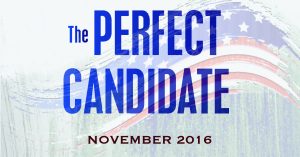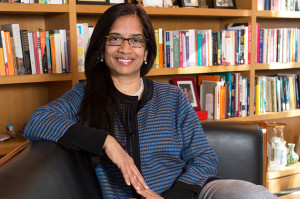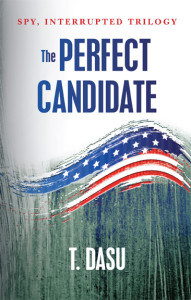Happy Thanksgiving, everyone! Here is an excerpt from The Perfect Candidate to get you in the mood. The protagonists Stephen and Nina take a break from the campaign trail to spend Thanksgiving with Nina’s parents, while campaign managers Doug and Wasim head to Doug’s hometown of New Orleans.
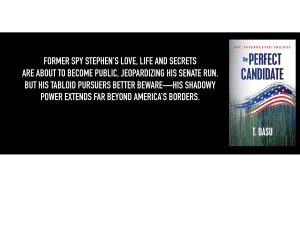 “Stephen and Nina’s limo was stuck in Thanksgiving traffic. They’d just dropped Wasim and Doug at Liberty International Airport in Newark, after attending a fund-raiser in New York City. The two young men were going to spend the holiday at the Mayhew home in New Orleans. The whole team was due back at the campaign headquarters on Friday for more debate prep and the hectic homestretch of the race.
“Stephen and Nina’s limo was stuck in Thanksgiving traffic. They’d just dropped Wasim and Doug at Liberty International Airport in Newark, after attending a fund-raiser in New York City. The two young men were going to spend the holiday at the Mayhew home in New Orleans. The whole team was due back at the campaign headquarters on Friday for more debate prep and the hectic homestretch of the race.
The car soon left the madness of the highways and sped through picturesque woods and horse country, cut across a national wildlife preserve famous for birding, and finally entered a gravel driveway that went up a hill to the open gates at the edge of a large property. A Frank Lloyd Wright–style home hugged the contours of the land, like a cubist snake made of glass and wood. The grounds of the house were occupied by acres of a Zen-like natural garden of native plants and tall trees.
The first time Stephen visited, Nina had watched his startled reaction with sly amusement, because she knew that he had expected a modest home in a typical, suburban cookie-cutter development. She had done nothing to disabuse him.
He wouldn’t admit it, but now, five years into his marriage, Stephen enjoyed his visits with his in-laws, particularly during the holidays. The front door was already open, and the entire clan stood ready to welcome them home. The Sharma children were given the same extravagant greeting each and every time they came home.
“We’re home!” Nina sat up in excitement when the limo came to a stop in front of the wide stone steps that led up to the entrance. The chauffer opened the car door for Stephen, who, in turn, held it open for Nina. When she stepped out and caught sight of her mother, Nina burst out laughing and waved to her. This was her first time coming to her parents’ home after becoming pregnant.
“Congratulations!” Ravi shook Stephen’s hand, while Deepa and Nina remained locked in a prolonged hug. Neel grinned at everyone. Nina’s grandparents beamed from inside the house.
The sprawling house was already decorated for the holidays, a long stretch of several months that began with Diwali, the Hindu festival of lights in October, and ended with the Indian harvest festival in January. Thanksgiving, Christmas, and New Year’s were sandwiched in between. Strings of Diwali lights were artfully tucked away and sparkled golden from unexpected corners and surfaces, filling the house with warmth.
Neel and Ravi hustled Stephen to the family room, where the large-screen TV was gearing up for endless football.
“Are you expecting a big crowd?” Stephen asked. His in-laws were notoriously social, with a large circle of friends and relatives, and were very active in the local Indian community.
It was almost five in the afternoon by the time they sat down to dinner. The dining table was set in the hexagonal hub where three different wings of the house came together. Wide glass-walled hallways led from the hub to other parts of the house.
The meal was an Indian interpretation of Thanksgiving staples, like yams, sweet potatoes, corn, pumpkin, and cranberries, supplemented with traditional Indian curries, dals, and raitas. It was arrayed like an Impressionist painting on the crisp white tablecloth. Parathas of different kinds were stacked in a dish in the middle, all wrapped in a soft white cloth to keep them moist, ready to melt on the tongue. A silver tray on the side was piled with a fragrant mountain of ghee-soaked basmati rice cooked to fluffy white perfection. Stephen’s stomach rumbled in response to the aroma; he hadn’t realized how hungry he was.
Nina’s grandparents were served first, then Stephen, the son-in-law, then Ravi and Deepa, and finally Nina and Neel. This was the traditional hierarchy, to be followed with scrupulous care at every meal, despite a cosmopolitan approach to other matters.
The Sharma clan loved their food. Cooking and eating were social affairs where everyone contributed any way they could—chopping, blending, cleaning, grocery shopping, tasting, stirring. And when they sat down to eat, everyone was highly animated and talked at once.
“Stephen, how is the campaign—” Deepa began.
Ravi jumped in before she could finish. “Yes, I’ve been watching the polls closely—”
Suddenly Grandpa announced loudly over the din, “I WANT RICE AND…”
Both Deepa and Ravi ordered Neel, “Serve Dadaji what he wants…”
But Grandma interjected, “It’s not good for him, don’t…” only to have Nina say, “Dadiji, it’s Thanksgiving, let him…”
In the meantime, Neel served a generous helping to Grandpa and asked “Stephen, did you watch the—”
This caused Nina to scold, “Neel, stop checking the scores.”
Ravi rounded it off with an emphatic “Denard was AMAZING!”
It never ceased to amaze Stephen that the family managed to not only have a conversation but to have cogent discussions and to make important communal decisions in this chaotic manner. Stephen never understood how. He had given up trying long ago and developed a strategy of joining in randomly. The family complained all the while that another morsel would kill them but continued to dig in any way.
“Stephen, let’s go. The game is about to begin,” Neel’s voice urged. Stephen joined Neel, Deepa, and Ravi in the family room, while Nina continued to gossip with the grandparents at the table. Even though he’d been overwhelmed by the boisterous and social Sharma clan at the start, he now felt completely a part of the family. He had learned to smile back at Grandma Sharma’s chanted blessings and exchange firm handshakes with Grandpa on every arrival and departure.
After a long, leisurely evening of eating and talking and more eating, Stephen and Nina went to bed around midnight. They were to sleep in Nina’s room, as usual. The queen bed always felt way too small to Stephen, accustomed as he was to his grandfather’s galleon of a bed. He kept fidgeting and tossing, trying to find a comfortable position without jabbing Nina with his elbows.
His phone buzzed.
“Hello!” he answered immediately. Nina opened her eyes. Her antennae were always keyed to danger.
“Hi Wasim! What’s up?”
Stephen laughed at something Wasim said and finished with a good night.
Nina sat up. “What happened?”
“Wasim’s drunk.” Stephen’s phone plinked pleasantly, and a video clip came through. He showed it to Nina: Doug playing the clarinet in a band at some club.
He sounds amazing! said the text from Wasim.”
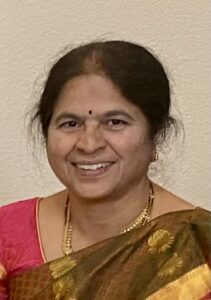 In this wide ranging interview, Santa Dasu talks about Yuva Bharati, the Bay Area’s premier cultural non-profit that promotes Indian classical dance. Santa, who is a musician herself, discusses how she, with the help of her husband and daughter, founded Yuva Bharati to promote Indian classic dance and provide a forum for young artists. Listen to her discuss the challenges of funding a self-sustaining cultural non-profit, her wonder at the community of friends it has created and the surprising benefits of free speech protection that make local channels a valuable resource for artists. Her account of what happens behind the scenes before, during and after a concert and the number of volunteers it takes is fascinating. Yuva Bharati has built up a reputation for high quality concerts and special festivals that promote creative and original artistic endeavors around special themes. Yuva Bharati also has a music wing, Swara Lahari.
In this wide ranging interview, Santa Dasu talks about Yuva Bharati, the Bay Area’s premier cultural non-profit that promotes Indian classical dance. Santa, who is a musician herself, discusses how she, with the help of her husband and daughter, founded Yuva Bharati to promote Indian classic dance and provide a forum for young artists. Listen to her discuss the challenges of funding a self-sustaining cultural non-profit, her wonder at the community of friends it has created and the surprising benefits of free speech protection that make local channels a valuable resource for artists. Her account of what happens behind the scenes before, during and after a concert and the number of volunteers it takes is fascinating. Yuva Bharati has built up a reputation for high quality concerts and special festivals that promote creative and original artistic endeavors around special themes. Yuva Bharati also has a music wing, Swara Lahari.





